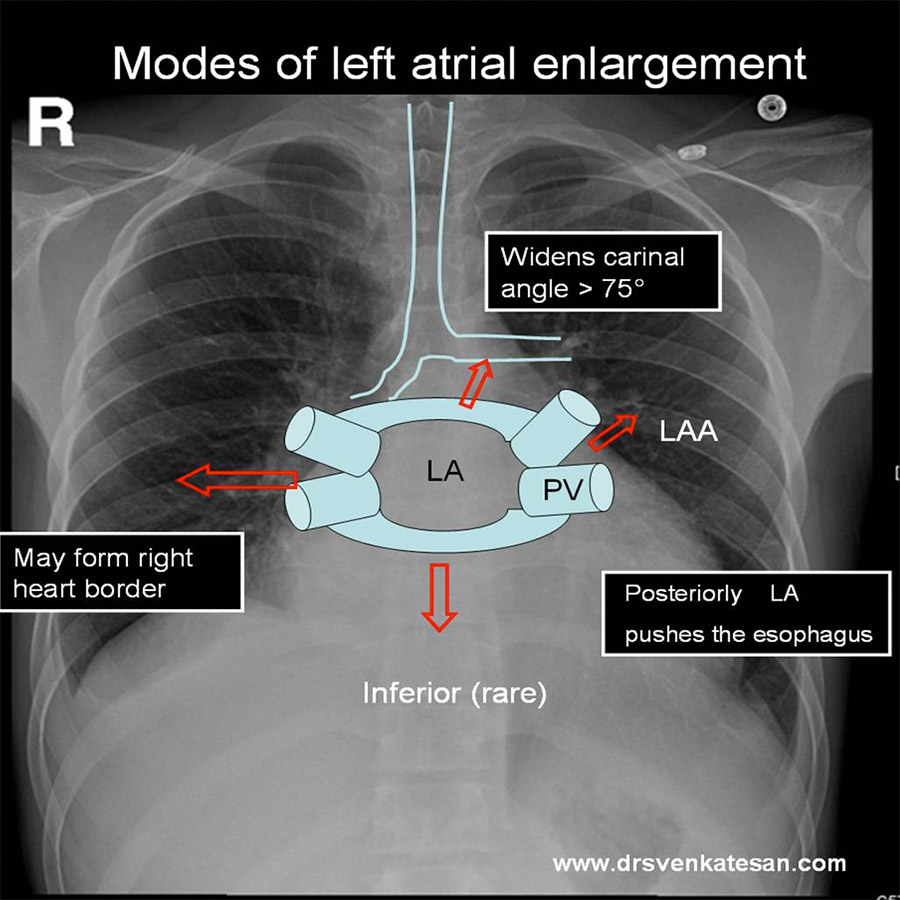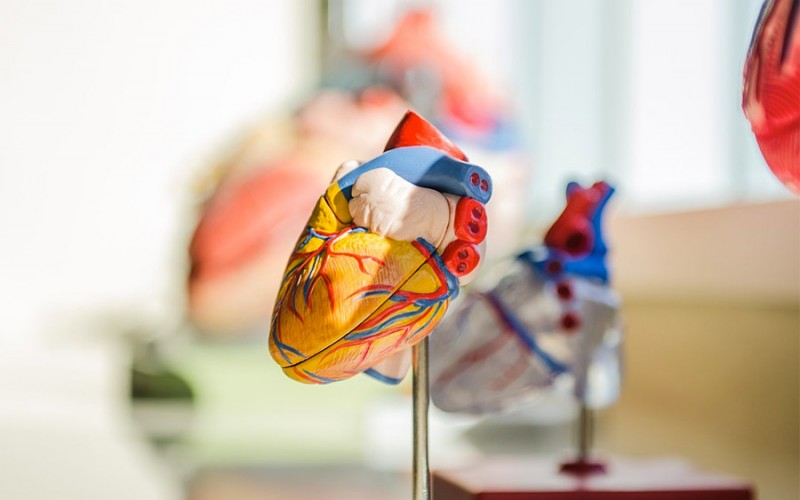Heart enlargement (cardiomegaly) has several variations; one of them is left atrial enlargement. It happens when the left atrium part of the hearts dilates, resulting in an abnormal heart shape. Some people may live while having it for a long time, but how serious is this condition in reality?
If you are worried about experiencing abnormal heart enlargement, read this guide to get the basic references.
Causes of Left Atrial Enlargement
When fresh blood leaves the lungs, it enters the left atrium and gets pumped into the left ventricle, before being distributed to the entire tissues of your body.
Left atrial enlargement can hindrance this function, causing various symptoms and even heart conditions. Some cases of enlargement happen because of age.
Men are also more likely to develop this condition than women since they have larger hearts.
There are risk factors associated with the left atrial enlargement. Obesity and high blood pressure are the main risk factors that cause your heart to dilate. Some cases of obstructive sleep apnea are also known to contribute to this heart condition.
Finally, the physical dysfunctions or damages on the heart’s valve can contribute to the enlargement. Mitral valve is located between the left atrium and ventricle.
When it is damaged, narrowed, or deteriorated, the bloodstream will be clogged and cause backflow. It can contribute to the larger left atrium.
How serious is left atrial enlargement? It depends on whether you develop a mild, moderate, or severe condition.
Some people don’t develop symptoms or simply confuse them with normal health conditions, while others experience severe impacts and need routine treatments.
Symptoms and Diagnosis of Left Atrial Enlargement
The common symptoms of left atrial dilation include shortness of breath, chest pain, swelling, dizziness, irregular heartbeats, and palpitations.
In the more severe cases, the person may faint because the heart cannot handle the pressure from stress or increased metabolism. Left atrial enlargement may also cause various cardiovascular issues in the future.

If you are worried about developing this condition, visit your doctor to receive more thorough checkups. There are several methods of diagnosis doctors commonly use to detect this condition.
The echocardiogram is the most common one, in which your doctor uses small electrodes and a probe to detect abnormal shape using the bounce of the soundwaves.
The CT and MRI scans are also common methods to diagnose any abnormalities in the heart’s shape.
Doctors may use them to accompany echocardiogram to ensure a more accurate reading.
Treatments of Left Atrial Enlargement
There is no exact treatment to cure the left atrial enlargement. Once the doctor makes the diagnosis, the treatment is focused on curing the main cause of the condition.
High Blood Pressure
For the left atrial dilation caused by high blood pressure, the common treatments include consuming specific medications, such as calcium channel blockers or beta-blockers.
The patient must also limit the consumption of salt and sodium. Healthy lifestyle, such as balanced eating, exercises, and stress management, is also important for people with high blood pressure.
Atrial Fibrillation
People with atrial fibrillation experiences irregular heartbeats due to the upper parts of the heart that are not in-sync with the lower parts.
This condition can cause left atrial enlargement. Doctors usually prescribe medications to control the rate and rhythm of the heart. If failed, they conduct procedures to return the normal rhythm of the heart, such as electrical cardioversion.
If the method is failed, doctors may perform more invasive procedures. Pulmonary vein ablation involves scarring the defective tissues that cause irregular heartbeats. If it also fails, the last solution is implanting a pacemaker.
Mitral Valve Abnormalities
Mitral valve abnormalities sometimes don’t require invasive treatments. If the condition is still mild, doctors may prescribe medications, such as heartbeat controller, diuretics, and anticoagulants.
However, if the condition is severe, doctors may perform mitral valve repair or even mitral valve replacement.
Lifestyle Recommendation
Finally, make sure you adjust your lifestyle to cope with left atrial dilation. Regardless of the treatments, improve your lifestyle by eating healthy meals and exercising.
Keep your weight at the ideal scale and meet a nutritionist to get a healthy eating program if you are overweight. Avoid consuming diet pills or herbal supplements, since they can make your heart condition worse.
Heart condition is hard to cure if the problem is tissue abnormalities. Having a left atrial enlargement can cause various symptoms and health problems.
However, you can live with it if you follow a healthy lifestyle and receive proper treatments from your doctor.




1 Comment
This was an excellent article. My question is with a large dilated left atrium I can exercise successively one day and the next not be able to climb stairs without shortness of breath, dizziness, and having to stop walking until the breath returns and the dizziness and total body weakness lessens. During certain days I feel weak and only rest. Weakness in the legs occurs with this condition. While eating air gets trapped in the esophagus and I have to rest from eating in order to swallow